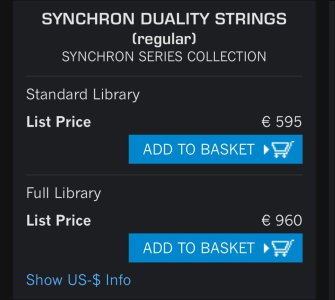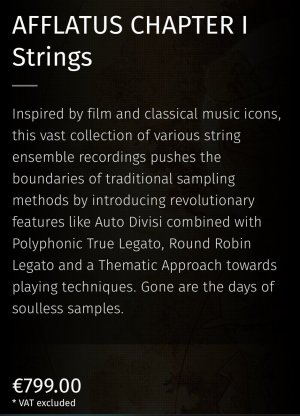JamesExactly
Active Member
I agree with you here, your entire post in fact. But -
I think that both the first-quick-test demo AND the official pro-sounding demos are both useful. There are many more people who are hobbyists then there are people at the level of the those who put together these demos for the sample library companies. So the first-quick-test demos give those people a feel for what they are likely to achieve, while the pro-sounding official demos give the pros a feel for what they can achieve as well.
I take many of these just-downloaded-it-and-here's-my-first-quick-test demos with a grain of salt. When I go to the OT website and listen to the fully fleshed out demos made by excellent composers who have already been using these libraries for some time, things sound quite wonderful. I also think that the approximately 40 minute walkthrough really highlighted a lot of details of the library (the license said Sascha up in the RH corner - I assume he was the player of the walk through, and I KNOW he knows what he's doing).
I think that both the first-quick-test demo AND the official pro-sounding demos are both useful. There are many more people who are hobbyists then there are people at the level of the those who put together these demos for the sample library companies. So the first-quick-test demos give those people a feel for what they are likely to achieve, while the pro-sounding official demos give the pros a feel for what they can achieve as well.










